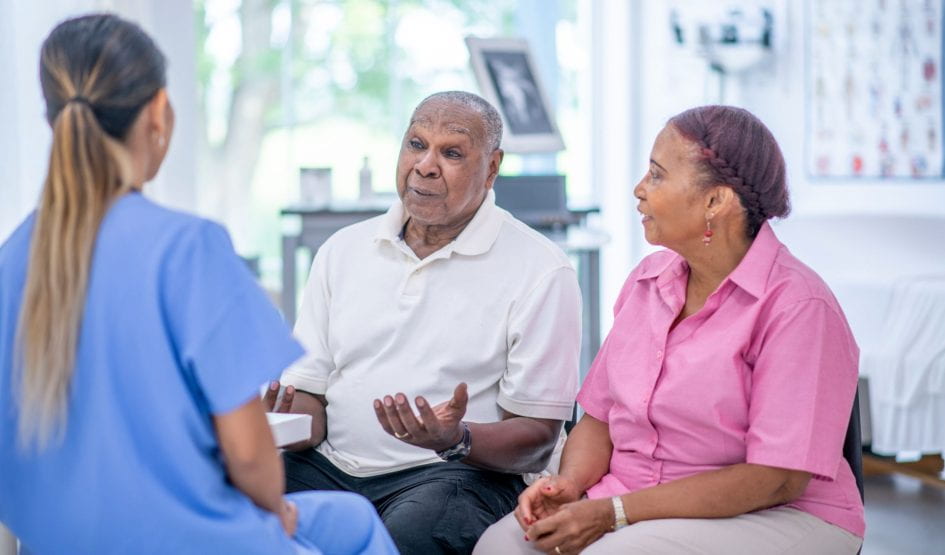Researchers at the LeadingAge LTSS Center @UMass Boston are analyzing recent data from the national Health and Retirement Study to update their two previous studies on the relationship between person-centered care and health outcomes. They’re looking to identify any changes in recent years and to determine if race and ethnicity, wealth and income, and disability disparities persist.
In their two earlier studies, using data through 2018, the researchers found that people who feel their preferences and desires are not taken into account when they engage with the healthcare system skew heavily to ethnic and racial minorities and people with lower incomes. The researchers have also shown that not feeling heard by the health system results in a host of bad outcomes, including not seeking preventive care, less engagement with the healthcare system, poorer management of chronic conditions, and higher projected health care costs. The SCAN Foundation has funded all three studies.
“So far, one of our big findings is that any improvements in person-centered care are being reported by older white populations. We see very little improvement among Hispanic and Black population regarding whether they feel listened to or heard when they engage with the health system” says Marc Cohen, PhD, co-director of the LTSS Center, who is leading the study.
The new data covers 2019 and 2020, the first year of the COVID-19 pandemic. The researchers will look into whether and how the use of telehealth—including accessing health providers through smart phones, tablets, computers, and land lines—influences receipt of person-centered care, and for whom.
“What happened to older adults living in the community during the pandemic, and was there a change in whether they felt they received this key element of person-centered care?” asks Cohen. “When people talk about the impact of telehealth, no one has focused the discussion on the older adult population. So we want to document what happened to person-centered care during the pandemic: Were older people who felt less listened to more or less likely to contract COVID? Were there differences in diagnosis, testing, and vaccines for those who felt that they were listened to compared to those who felt they weren’t?”
Cohen and Jane Tavares, PhD, a research fellow in the LTSS Center, will also study whether managed care arrangements make a difference in receiving person-centered care and explore any racial and ethnic differences for these people with complex care needs, including those with long-term supports and services needs or with high-cost chronic conditions.
Lastly, the researchers plan to develop a “report card” that can be used to mark progress for the health system as a whole regarding movement toward or away from the objective of person-centered care. “We want a way to measure progress over time regarding person-centered care,” Cohen says. “We are identifying those variables that are most instructive for understanding how health systems are performing related to person-centered care.”
The researchers are working with McCabe Message Partners, a communications firm contracted with by the SCAN Foundation, to develop infographics, blog posts, videos and more to share information on the person-centered care findings. “The SCAN Foundation wants to keep this issue front and center in the public eye,” Cohen says.


Leave a Reply